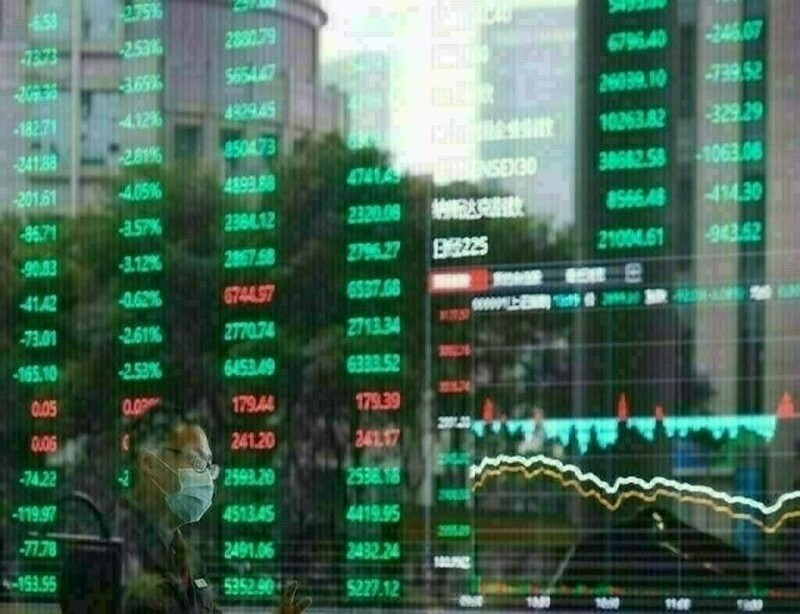SINGAPORE/SHANGHAI: Chinese stocks eased on Tuesday as the frenzied rally that drove them to multi-year highs a week ago subsides with investors stepping back to see when and where government support will be directed at the world’s second-biggest economy.
The Shanghai Composite and the blue-chip CSI300 were each down about 0.5% at the midday break and Hong Kong’s Hang Seng fell 1.3%.
Volumes dropped sharply back toward longer-run averages after a period of hectic trading.
China’s markets have been on a tear since late September when a series of policy announcements drove speculation that the government was finally serious about spending money to salvage this year’s 5% growth target and address flagging consumption.
The CSI300, which is up 23% since the closing bell on Sept. 23, has turned bumpy in recent sessions as the policy promises have lacked details on timing and size.
China stocks rally slows as stimulus vows lack detail
On Saturday the finance ministry had said it would increase borrowing, without saying when or by how much. Caixin Global reported on Tuesday China may raise an additional 6 trillion yuan ($850 billion) over three years to fund fiscal stimulus.
“We reckon more details will be shared at the Standing Committee of the National People’s Congress later this month after the MoF sent a clear signal to investors that it plans to use its fiscal firepower soon at the press conference on Saturday,” said Alex Loo, macro strategist at TD Securities.
Officials have also reiterated their intention to achieve around 5% growth, which has stoked expectations that spending is imminent to start turning around sluggish economic activity.
“If we still achieve 5% this year, then we can see perhaps we are already at the bottom of this L-shaped path (for China’s growth-rate), which I think would help anchor market expectations,” said Citi’s chief China economist Xiangrong Yu “In this sense, it’s pretty important,” he said.
“Otherwise, I think, it seems this slow-down process is a non-ending process.” Most market sectors were marginally lower on Tuesday but property, defence and semiconductor-focused sub-indexes rose more than 1% as they are seen as beneficiaries of spending needed urgently to support growth.
“I believe October and November are the critical time window for deploying the money to form GDP for this year,” said Citi’s Yu.
Broader markets in Asia were fairly steady, while the yuan slid about 0.3% to a one-month low of 7.1126 per dollar. Oil slid 3% on reports Israel would avoid attacking Iranian oil facilities.

Source: Brecorder




























